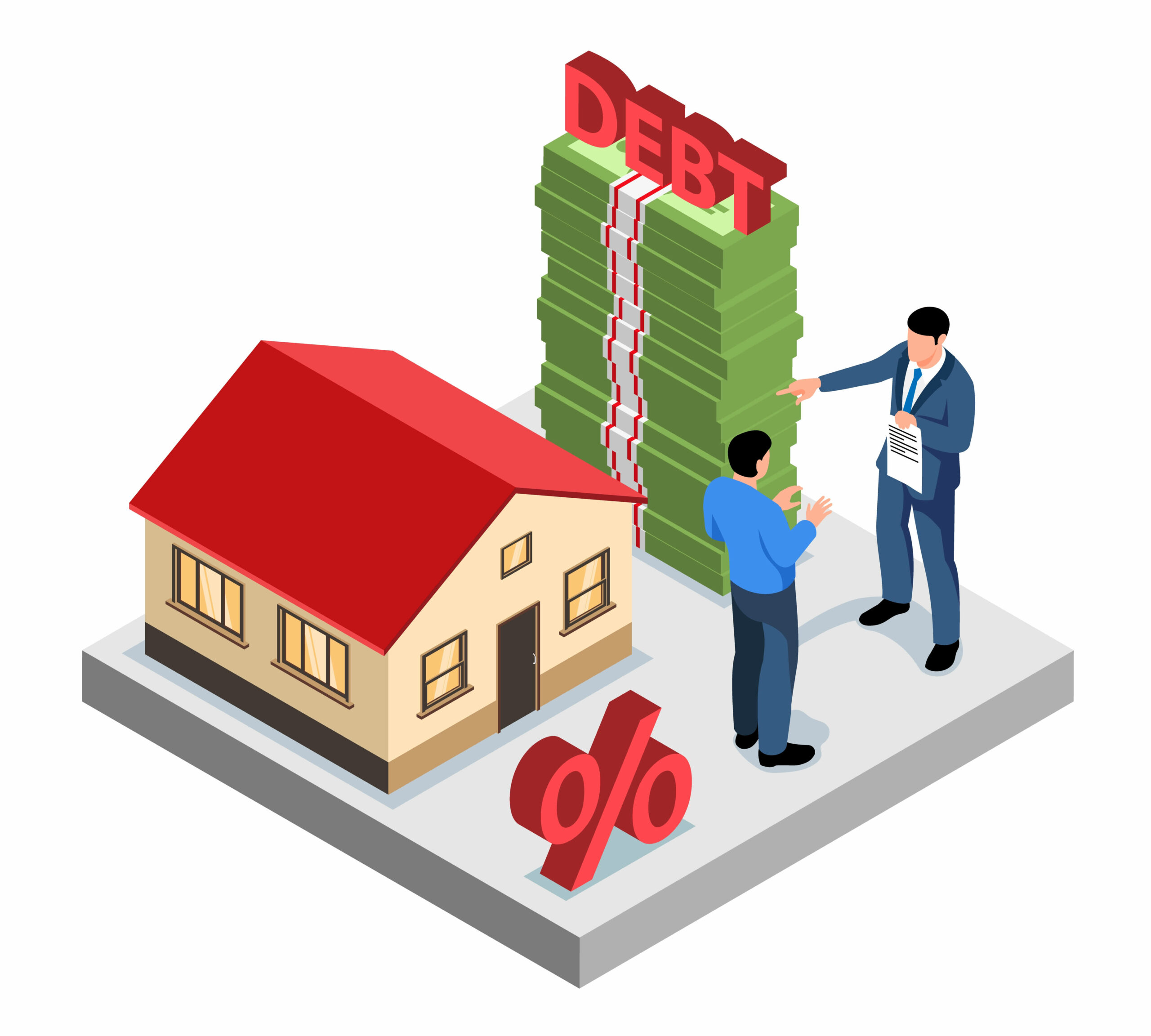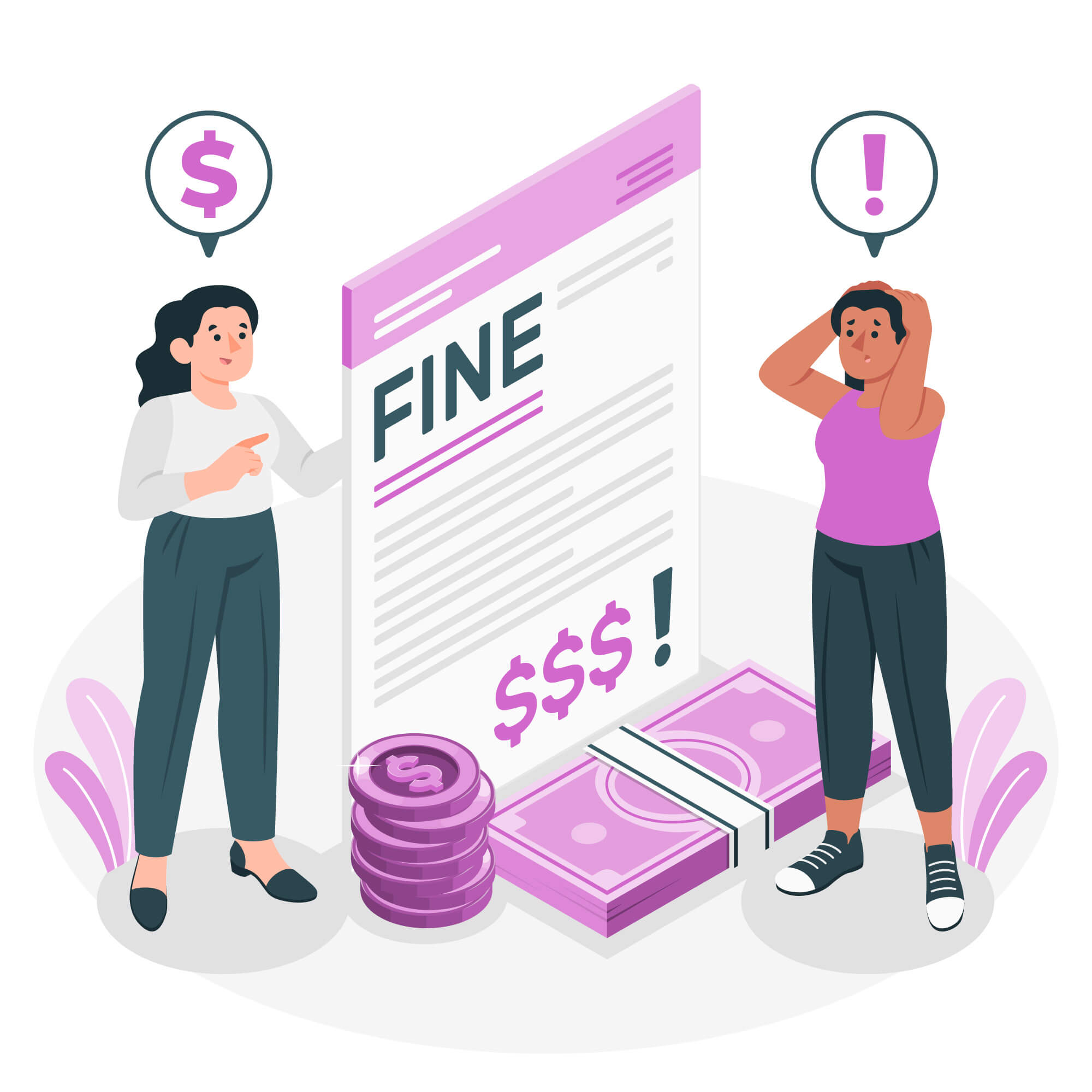Debt consolidation combines multiple debts into one manageable payment, while debt relief reduces or eliminates debt through negotiation or settlement.
Managing personal debt can be overwhelming, and it’s important to explore different strategies to find the most suitable solution for your financial situation. Debt consolidation and debt relief are two common approaches to managing debt, but they have distinct differences that can impact your financial strategy.
Debt consolidation involves combining multiple debts into one consolidation loan, streamlining your payments into a single monthly installment at a potentially lower interest rate. This can help simplify your debt management and potentially reduce your overall monthly payment. On the other hand, debt relief typically involves negotiating with creditors to reduce the total amount owed. This negotiation process can lead to a lower payoff amount, but it often comes with potential negative consequences.
Understanding the differences between debt consolidation and debt relief is crucial when deciding which approach is best for your financial goals. In this article, we will delve deeper into these strategies and provide insights to help you determine the most suitable path for you.
Key Takeaways:
- Debt consolidation involves combining multiple debts into one consolidation loan.
- Debt relief involves negotiating with creditors to reduce the total amount owed.
- Debt consolidation simplifies debt management and may result in lower monthly payments.
- Debt relief can lead to a lower payoff amount but may have negative consequences.
- Understanding the differences between these approaches is crucial for choosing the right strategy.
What Is Debt Consolidation?

Debt consolidation is a process where multiple debts are combined into a single consolidation loan. This loan pays off all the prior debts, resulting in one monthly payment at one interest rate.
Debt consolidation loans can be obtained from banks, credit unions, or online lenders. They may be secured by collateral, such as a home or car, or unsecured. Debt consolidation can help simplify debt management and potentially lower the total monthly payment or interest rate.
| Pros of Debt Consolidation | Cons of Debt Consolidation |
|---|---|
| Simplifies debt management | May require collateral |
| Potentially lowers monthly payment | May have higher interest rates |
| Streamlines payments into one | May require good credit for qualification |
What Is Debt Settlement?

Debt settlement means talking with the people you owe money to and convincing them to accept less than what you owe as full payment. You can do this on your own or get help from a credit counselor or a settlement company. When you settle a debt, you usually end up paying less than the total amount you owe. This can help you get rid of debt without paying everything back, but it might also hurt your credit score and cause tax issues.
If you have a lot of debt that feels overwhelming, debt settlement might seem like a good way out. You or a professional can negotiate with your creditors to pay less than what you owe. However, remember that this could harm your credit and you might have to pay taxes on the forgiven debt. It’s essential to consider these consequences before deciding if debt settlement is right for you.
Advantages of Debt Settlement:
- Opportunity to eliminate debts without paying the full amount owed
- Potential for significant savings, as the negotiated amount is typically lower than the original debt
- Ability to regain financial freedom and a fresh start
Considerations for Debt Settlement:
- Potential negative impact on credit scores
- Possible tax implications for the forgiven portion of the debt
- Requires negotiation skills and the ability to navigate complex financial discussions
When considering debt settlement as a debt relief option, it’s essential to weigh the advantages and disadvantages carefully. Additionally, consulting with a financial advisor or credit counselor can provide valuable insights and help inform the decision-making process.
Debt Consolidation vs. Debt Settlement: Key Differences
When it comes to managing personal debt, both debt consolidation and debt settlement are popular strategies. However, it’s essential to understand the key differences between these two approaches before making a decision. Let’s explore the contrasting features of debt consolidation and debt settlement:
Objective:
Debt consolidation aims to make it easier to pay off debt by putting all your debts into one loan. This way, you only have to worry about making one payment each month. On the other hand, debt settlement is about talking to the people you owe money to and asking them to let you pay less than what you owe.
Credit Score Impact:
When you consolidate your debt, it could actually help your credit score if you manage it well. This is because having just one loan instead of many can make it easier to keep track of payments. But if you settle your debt, it might hurt your credit score because it shows that you didn’t pay everything you owed on time.
Cost:
Consolidating your debt might come with different interest rates and fees, depending on the loan you get. But settling your debt can be expensive too. You might have to pay a lot of money to the company that helps you negotiate with your creditors.
Pros and Cons:
Consolidating your debt can make it simpler to manage because you only have one payment to worry about. It could also lower your monthly payment or interest rate, which might save you money in the long run. However, you need to have good credit to get a consolidation loan. On the other hand, settling your debt could let you pay less than what you owe, which sounds good. But it could hurt your credit score and might lead to tax problems. So, you have to think about the good and bad sides of each option before deciding what’s best for you.
Now that we have explored the key differences between debt consolidation and debt settlement, it’s time to consider your specific financial situation and goals. Consulting with a financial advisor can provide valuable insights and help you determine which strategy is best suited to your needs.
How to Negotiate a Debt Settlement
If you find yourself in a situation where you need to negotiate a debt settlement, there are a few important steps to follow. Whether you choose to handle the negotiation on your own or seek assistance from a debt settlement company, understanding the process can help you achieve a favorable outcome.
- Contact Your Creditors: The first thing to do is get in touch with the people you owe money to. You can do this by calling them or sending them a letter. You’ll need to explain why you’re having trouble paying and be honest about your situation.
- Negotiate a Settlement Amount: When you talk to your creditors, they might agree to let you pay less than what you owe. But they could also say no or suggest a different amount. You’ll need to be ready for any outcome and be willing to find a middle ground that works for both you and the creditor.
- Payment Arrangements: If you and your creditor agree on a settlement amount, you’ll need to figure out how you’re going to pay it. You might be able to make one big payment or set up a plan to pay it off over time with smaller payments. Talk to your creditor about what works best for you.
- Communication and Documentation: It’s really important to keep talking to your creditor and write down everything you discuss. This way, you have proof of what was agreed upon in case there’s a problem later on. Keep track of all the letters and emails you send and receive.
- Debt Settlement Companies: If dealing with your creditors on your own is too much, you can hire a company to do it for you. These companies are experts at talking to creditors and can help you reach a settlement. Just make sure to pick a company that’s trustworthy and has good reviews from other people.
By following these steps and understanding the debt settlement process, you can work towards resolving your debts and regaining financial stability.
Debt Consolidation vs. Debt Settlement: Which One Is Better?
Choosing between debt consolidation and debt settlement depends on your specific financial situation. Both options have their benefits and considerations, and it’s important to assess your eligibility and goals before making a decision. Here’s a comparison to help you determine the best option:
Debt Consolidation
Debt consolidation may be a better option if you need to simplify your payments and potentially save money on interest. By combining multiple debts into one consolidation loan, you can streamline your financial obligations. Debt consolidation loans can be obtained from banks, credit unions, or online lenders. It’s essential to have good credit and qualify for a consolidation loan.
One advantage of debt consolidation is the potential for a lower monthly payment or interest rate, which can provide immediate relief. With a single payment, it’s easier to manage your finances and stay organized. However, it’s important to consider the possible costs associated with debt consolidation, such as interest rates and fees.
Here’s a visual representation of the key features of debt consolidation:
| Debt Consolidation | Pros | Cons |
|---|---|---|
| Combines multiple debts into one loan | Potential for lower monthly payment | Possible interest rates and fees |
| Streamlines debt management | Easier to stay organized | Requires good credit and eligibility |
Debt Settlement
Debt settlement could be a viable option if you’re already behind on payments and facing potential lawsuits from creditors. It involves negotiating with creditors to accept a reduced amount as full payment for the debt. Debt settlement can help you eliminate debts without paying the full balance, offering a potential fresh start.
However, debt settlement may have negative consequences, such as damaging credit scores and potential tax implications. It requires negotiating skills and available funds to make settlement payments. It’s crucial to carefully assess your financial situation and consult with a financial advisor before pursuing debt settlement.
Here’s a visual representation of the key features of debt settlement:
| Debt Settlement | Pros | Cons |
|---|---|---|
| Reduces the total amount owed | Potential for debt elimination | May damage credit scores |
| Provides a potential fresh start | Offers negotiation opportunities | Requires negotiation skills and funds |
It’s important to carefully weigh the pros and cons of debt consolidation and debt settlement. Consider your specific financial circumstances, eligibility, and goals. Consulting with a financial advisor can provide valuable insights and help you determine the best course of action. Remember, there is no one-size-fits-all solution, so take the time to assess your options before making a decision.
What Type of Loan Is a Debt Consolidation?
A debt consolidation loan can be a highly effective solution for managing multiple debts. It allows you to combine your various debts into a single loan, making it easier to keep track of your payments and potentially saving you money on interest charges. There are two common types of loans that can be used for debt consolidation: installment loans and home equity lines of credit (HELOC).
Installment Loan
An installment loan is a popular option for debt consolidation. With an installment loan, you receive a lump sum of money from the lender and repay it in fixed monthly installments over a set period. The loan terms, including the repayment period and interest rate, are agreed upon upfront, providing you with a clear timeline for paying off your debts. This type of loan can be secured or unsecured, depending on your credit score and the lender’s requirements.
Home Equity Line of Credit (HELOC)
A home equity line of credit (HELOC) is another option for debt consolidation, especially for homeowners. A HELOC allows you to borrow against the equity in your home, providing you with a revolving line of credit that you can use as needed. The interest rate on a HELOC is typically lower than that of many other types of credit, making it an attractive option for consolidating high-interest debts. However, it’s important to remember that using your home as collateral puts your property at risk if you’re unable to make the required payments.
| Criteria | Installment Loan | Home Equity Line of Credit (HELOC) |
|---|---|---|
| Repayment Term | Fixed | Revolving |
| Interest Rate | Fixed | Variable |
| Collateral | May be secured or unsecured | Home equity as collateral |
| Qualifications | Good credit score, income verification | Equity in the home, good credit score, income verification |
When considering which type of loan is best for debt consolidation, it’s essential to evaluate your financial situation and goals. Both installment loans and HELOCs have their own advantages and considerations. Comparing the terms, rates, qualifying criteria, and personal circumstances will help you make an informed decision that suits your needs.
Remember to carefully assess your ability to make the required payments and consider any potential risks before proceeding with a debt consolidation loan. If you are unsure which loan option is right for you, consulting with a financial advisor can provide valuable insights and guidance.
How Do I Know a Debt Consolidation Company Is Reputable?
When considering working with a debt consolidation company, it’s crucial to ensure its reputation and legitimacy. Unfortunately, the financial industry is not immune to scams and fraudsters, so it’s essential to exercise caution and conduct proper research before making any commitments. Here are some key factors to consider when evaluating the credibility of a debt consolidation company:
1. Communication and Transparency
- Reputable debt consolidation companies prioritize open communication and transparency. They should be readily available to answer your questions and provide clear explanations of their services and fees.
- Avoid companies that are evasive, fail to provide detailed information, or pressure you into making quick decisions.
2. Pricing and Payment Structure
- Be cautious of companies that demand exorbitant upfront fees or require you to pay for their services before any results are achieved.
- Reputable debt consolidation companies typically charge reasonable fees and offer payment structures that align with your financial situation.
3. Unrealistic Promises
- Scammers often make unrealistic promises, such as guaranteeing to eliminate all your debt quickly or significantly lowering your monthly payments without any consequences.
- Avoid companies that make claims that sound too good to be true. Legitimate debt consolidation companies provide realistic and transparent solutions.
4. Accreditation and Customer Service Ratings
- Research if the debt consolidation company you’re considering is accredited by reputable organizations, such as the Better Business Bureau (BBB).
- Check the BBB website for any complaints or regulatory actions against the company. Additionally, review customer service ratings and feedback to gauge the experiences of previous clients.
5. Professional Advice and Recommendations
- Consider seeking professional advice from financial advisors or credit counseling agencies before choosing a debt consolidation company.
- These professionals can provide valuable insights and recommendations based on your specific financial situation, helping you make an informed decision.
By taking the time to research and verify a debt consolidation company’s credentials, you can protect yourself from scams and fraudsters. Remember, reputable companies prioritize communication, transparency, fair pricing, and realistic solutions. Your financial wellbeing is paramount, so choose a debt consolidation company with a proven track record of helping individuals like you regain control of their finances.
Who Qualifies for Debt Settlement?
To qualify for debt settlement, individuals usually need to demonstrate financial hardship, such as being significantly past due on their accounts. The eligibility criteria can vary for each creditor, and not all may be open to settlement. However, creditors may be more willing to negotiate if they believe they may not receive full payment otherwise. If you’re facing financial difficulties, it’s important to contact your creditors and explore the possibility of debt settlement.
Here are a few common situations that may make you eligible for debt settlement:
- You are struggling to make minimum monthly payments and are significantly past due on your accounts.
- You have experienced a financial setback, such as a job loss, medical emergency, or divorce, that has made it difficult to keep up with your debts.
- You have limited income and assets, making it unlikely that you can pay off the full amount owed within a reasonable timeframe.
Keep in mind that each creditor may have its own criteria for determining eligibility for debt settlement. Therefore, it’s essential to communicate with your creditors directly to understand their specific requirements and explore the possibility of settling your debts.
Other Solutions to Consider
In addition to debt consolidation and debt settlement, there are other solutions that can help you overcome financial challenges. Depending on your situation, these alternatives may be worth exploring:
Credit Counseling
Credit counseling provides guidance and assistance in creating a debt management plan. This involves working with a credit counselor who can assess your financial situation, negotiate lower interest rates with your creditors, and develop a repayment plan that fits your budget. Credit counseling agencies, especially non-profit organizations, can provide valuable resources and support to help you regain control of your finances.
Bankruptcy
Bankruptcy should be considered as a last resort when other options have been exhausted. It is a legal process that can help individuals and businesses eliminate or repay their debts under the protection of the court. However, bankruptcy has serious consequences and should only be pursued after consulting with a bankruptcy attorney. It’s important to understand the different types of bankruptcy and their specific requirements before making a decision.
Repayment Plan
If your financial struggle is temporary or manageable, negotiating a repayment plan with your creditors may be an option. This involves working directly with your creditors to establish new payment terms that are more affordable for you. By demonstrating your commitment to repay the debt, you may be able to avoid more severe consequences like collection agencies or legal action.
Remember, everyone’s financial situation is unique, and the best solution will depend on your individual circumstances. Consulting with a professional, such as a financial advisor or bankruptcy attorney, can provide personalized insights and help you choose the most suitable option. By taking proactive steps and exploring these alternatives, you can work towards achieving financial stability and a brighter future.
Conclusion
When it comes to handling personal debt, there are two main options: debt consolidation and debt settlement. Debt consolidation means combining all your debts into one loan, while debt settlement involves negotiating to pay less than what you owe. Both have their pros and cons, so it’s important to think about your financial goals and credit before deciding. Getting advice from a professional can help you make the right choice and create a solid plan to manage your debt effectively. Remember, dealing with your debt is crucial for achieving financial stability and peace of mind.
FAQ
What is the difference between debt consolidation and debt relief?
Debt consolidation involves combining multiple debts into one consolidation loan, while debt relief typically involves negotiating with creditors to reduce the total amount owed.
What is debt consolidation?
Debt consolidation is a process where multiple debts are combined into a single consolidation loan, resulting in one monthly payment at one interest rate.
What is debt settlement?
Debt settlement involves negotiating with creditors to accept a reduced amount as full payment for the debt.
What are the key differences between debt consolidation and debt settlement?
Debt consolidation focuses on combining debts into one loan, while debt settlement involves negotiating to pay less than the full amount owed. Debt consolidation may have a positive impact on credit scores, while debt settlement can harm credit scores. Debt consolidation may have varying interest rates and possible fees, while debt settlement can be costly.
How can I negotiate a debt settlement?
You can start by reaching out to your creditors to discuss the possibility of settlement. This can be done over the phone or in writing. If an agreement is reached, you can arrange to make the payment either as a lump sum or in installments.
Which is better, debt consolidation or debt settlement?
The best choice depends on individual circumstances. Debt consolidation may be a better option if you need to simplify your payments and potentially save money on interest. Debt settlement could be a viable option if you’re already behind on payments and facing potential lawsuits from creditors.
What type of loan is a debt consolidation?
A debt consolidation loan can be either an installment loan or a home equity line of credit (HELOC).
How do I know a debt consolidation company is reputable?
It’s important to ensure the company’s reputation and legitimacy. Look for signs of scams, check accreditation and customer service ratings, and research the company’s credentials.
Who qualifies for debt settlement?
To qualify for debt settlement, you typically need to demonstrate financial hardship, such as being significantly past due on your accounts. Each creditor has its own criteria for settlement.
What are other solutions to consider for managing debt?
Other solutions include credit counseling, non-profit agencies that negotiate lower interest rates and payment arrangements, and bankruptcy as a last resort.
What are the key differences between debt consolidation and debt relief?
Debt consolidation involves combining multiple debts into one consolidation loan, while debt relief typically involves negotiating with creditors to reduce the total amount owed.
Source Links
- https://www.investopedia.com/ask/answers/110614/whats-difference-between-debt-consolidation-and-debt-settlement.asp
- https://www.debt.org/settlement/vs-consolidation/
- https://www.cnbc.com/select/debt-consolidation-vs-debt-settlement/
Image Credits
Featured Image By – rawpixel.com on Freepik
Image 1 By – macrovector on Freepik
Image 2 By – storyset on Freepik









